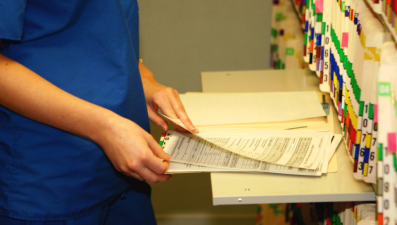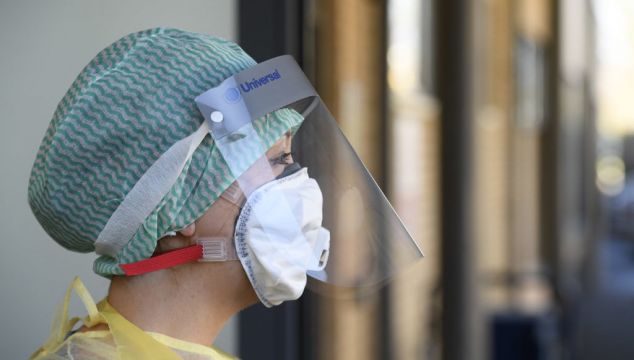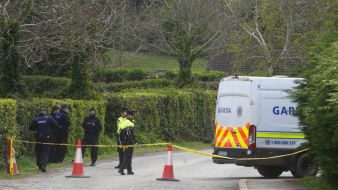Hospitals will face an "avalanche" of legal cases if security concerns are not addressed following a large rise in assaults on nurses, an employment law solicitor has warned.
The Irish Nurses and Midwives Organisation (INMO) has called for increased security across all areas of hospital campuses after a large rise in assaults on nurses.
This comes as figures reveal that more than five nurses were physically, verbally or sexually assaulted each day in the month of June.
The INMO said in 2021 the Health and Safety Authority recorded 7,477 inspections but only 446 inspections in health and social care settings, compared to 2,865 in construction.
Figures obtained by the INMO, compiled via the HSE's National Incident Management Scheme, revealed that in 2020 more than 8,667 staff reported physical, verbal and sexual assault in the workplace.
Nurses and midwives suffered 48 per cent of those injuries, with 4,166 nurses and midwives reporting some type of assault.
Employment law solicitor Richard Grogan told BreakingNews.ie: "The position in relation to it is that an employer is responsible if there is an assault on an employee."
Mr Grogan pointed to the Safety, Health and Welfare at Work Act, 2005, which sets out employers' responsibility for creating a safe system of work.
"If an employer has not put in a safe system of work, then they're on the hook for a personal injury claim for the injury sustained by that staff member," he explained.
"I understand some will say 'well, we're a hospital'. That's well and good, but if this is happening they need to put in the appropriate protections.
"We know that there are people coming in blind drunk, people coming in who have taken drugs, or are coming in after a violent incident... that is not an inherent risk for someone working there, that they're not entitled to a safe system of work.
"The issue that's coming up is, they have to show what they've done to protect people. How often have gardaí been called is the type of question a solicitor will ask.
"If you have a history of a particular individual coming and being disruptive, what have you done in that situation?
"I understand the difficulties hospitals have, they have to give treatment to people, but the safety of staff comes equally, if not more, to the safety of a patient coming in who has a history of being violent. The position to date has been that nurses and doctors have taken a benign attitude towards this, that is beginning to change."
Mr Grogan said a case where a nurse, or any member of hospital staff, who has been assaulted that reaches court "will not be an answer of 'we had no choice but to treat this person'. The issue is what protections did you put in for the staff in relation to that?"
'Zero tolerance'
He said the HSE, and hospital management, should be taking a "zero tolerance approach" to any assaults on staff.
"Gardaí should be called after any assault; this is not always being done."
Mr Grogan is also a personal injury lawyer, and he pointed out that the psychological effects of workplace assaults can be severe on individuals.
"Employees have a right to a safe system of work. Some may claim it's [assaults] an occupational risk, that's not right.
"When the employer knows this is a problem, it's not good enough to say 'this is just a fact of life'.
"Under the Safety, Health and Welfare at Work Act, employees can put in a complaint or a grievance. They can say 'I'm not going to work in a situation where I'm put at risk going forward, I require appropriate protections to be put in place'.
"What the HSE has been very lucky with to date, is the fact that nurses and doctors have not been bringing these claims. Those claims will start being made, some of them for a safe system of work.
"I deal with cases where people have been assaulted at work, it's not just the physical injury, it's the psychological damage that comes too, the fear that this will happen again. This will drive people from the health service."
If it isn't done what's going to happen is some person has a weapon on them and some nurse or doctor gets killed. At what stage do we say enough is enough?
Mr Grogan said a "two-pronged" approach is needed. The most important factor is the additional security the INMO has called for, he said, adding that tougher legislation for those who commit assaults on hospital staff is also necessary.
"If these changes aren't made the pushback from the INMO and solicitors representing nurses will be 'here's a set of proceedings, now start dealing with this down in the courts'.
"Here's a claim from the Safety, Health and Welfare at Work Act looking for appropriate protections to be put in place, not just compensation for a breach of their rights but for appropriate protections to be put in place.
"Someone will point out this is going to cost a lot of money. Yes it will, but if it isn't done what's going to happen is some person has a weapon on them and some nurse or doctor gets killed. At what stage do we say enough is enough?"
He said the assault figures highlighted by the INMO are "unacceptable in any kind of organisation".
What's happening in hospitals at the minute is there is no deterrence in place, you don't see security in most hospitals.
"The INMO is conservative with these figures, they understate rather than overstate. The true figure is probably substantially higher.
"We are also personal injury solicitors, our advice to employers is always 'you don't want to have an accident in your workplace, it is always better to have protections in place for your staff's safety'. You don't want to see any worker assaulted.
"People working in hospitals have a hard enough job as it is. Legislation should also exist that having taken drugs or alcohol is no excuse, it actually makes the offence more serious.
"Stop people being injured. That's why there are extra guards on a bank holiday weekend, to deter people from drink-driving.

"What's happening in hospitals at the minute is there is no deterrence in place, you don't see security in most hospitals."
Mr Grogan concluded: "I don't want this being kicked to touch until such time as we have a dead nurse. This is a risk that has been identified, it has been there for a number of years. Hospitals are already late in addressing it. This has to be dealt with now, immediately. If it is not dealt with, the repercussions are because of their failure to address a known risk.
"The judiciary can only deal with it if they have the appropriate legislation, they will deal with it if that legislation is put in place."







